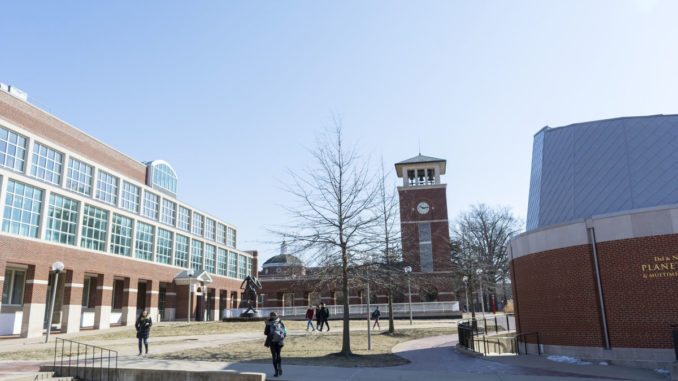
The Truman State University Board of Governors approved a 5% increase in tuition set to go into effect this upcoming year.
Students received an email from the President’s Office Jun. 24. stating there would be a tuition increase instated for the 2019-2020 academic year. This tuition increase affects both undergraduate and graduate students, as well as Missouri residents and out-of-state students.
There is no increase in the Student Health Fee, the Student Activity Fee or the academic program and course fees.
Financial Aid Director Marla Fernandez said the tuition fee for a full-time undergraduate Missouri resident will be $7,796 and $14,990 for an undergraduate non-Missouri resident. Last year, tuition rates were $7,425 for in-state students and $14,277 for non-Missouri residents.
Fernandez said for full-time graduate students taking nine credit hours, tuition will be $6,867 for Missouri residents and $11,889 for non-Missouri residents. Opposed to last years tuition rates at $6,543 for residents and $11,322 for non residents.
“It is imperative that Truman continues to provide a high quality educational experience,” President Sue Thomas wrote in the email to students. “This tuition increase, while undesirable, is essential in maintaining the quality of your educational experience.”
Thomas wrote in an email statement to The Index that the 5% increase in tuition is expected to give Truman approximately $1.5 million, however, the institutional aid that is tied to the tuition rate will also go up.
Thomas also wrote that the $1.5 million is not extra money. State funding for Truman for 2019-2020 is essentially the same in actual dollars as what it was for 1999-2000, Thomas wrote. However, for the most recent three budget years, Truman’s Education and General Budget (which primarily includes state funding and tuition and fees) has decreased $3.8 million.
Another reason for the tuition increase is the increase in fixed costs, Thomas wrote. For example, over time the state retirement system has increased the required university contribution rate by 11.9%. The cost of Truman’s health insurance package, which is provided for all employees, has increased to 20.1%, Thomas wrote. Truman is paying 20.1% more for health insurance coverage. Truman also increased the minimum wage for all impacted employees and was one of the few public universities to increase student wage rates, Thomas wrote.
To address the decreases in revenue and increases in fixed costs and to ensure Truman does not operate with a deficit. there have been significant cuts in faculty and staff, operating budgets, and maintenance and repair budgets, Thomas wrote.
“If Truman is to be the University we all want it to be, we cannot continue to just make cuts; we must also increase revenue,” Thomas wrote. “There are many ways to increase revenue in addition to raising tuition (e.g., donations, grants, increased enrollments, etc.) and Truman is pursuing all of those avenues. While we are committed to keeping tuition as low as possible, with a tuition rate that has not kept pace with inflation over the past decade and institutional aid that, on the average, is significantly more generous than other public universities, an increase in tuition had to be considered.”
